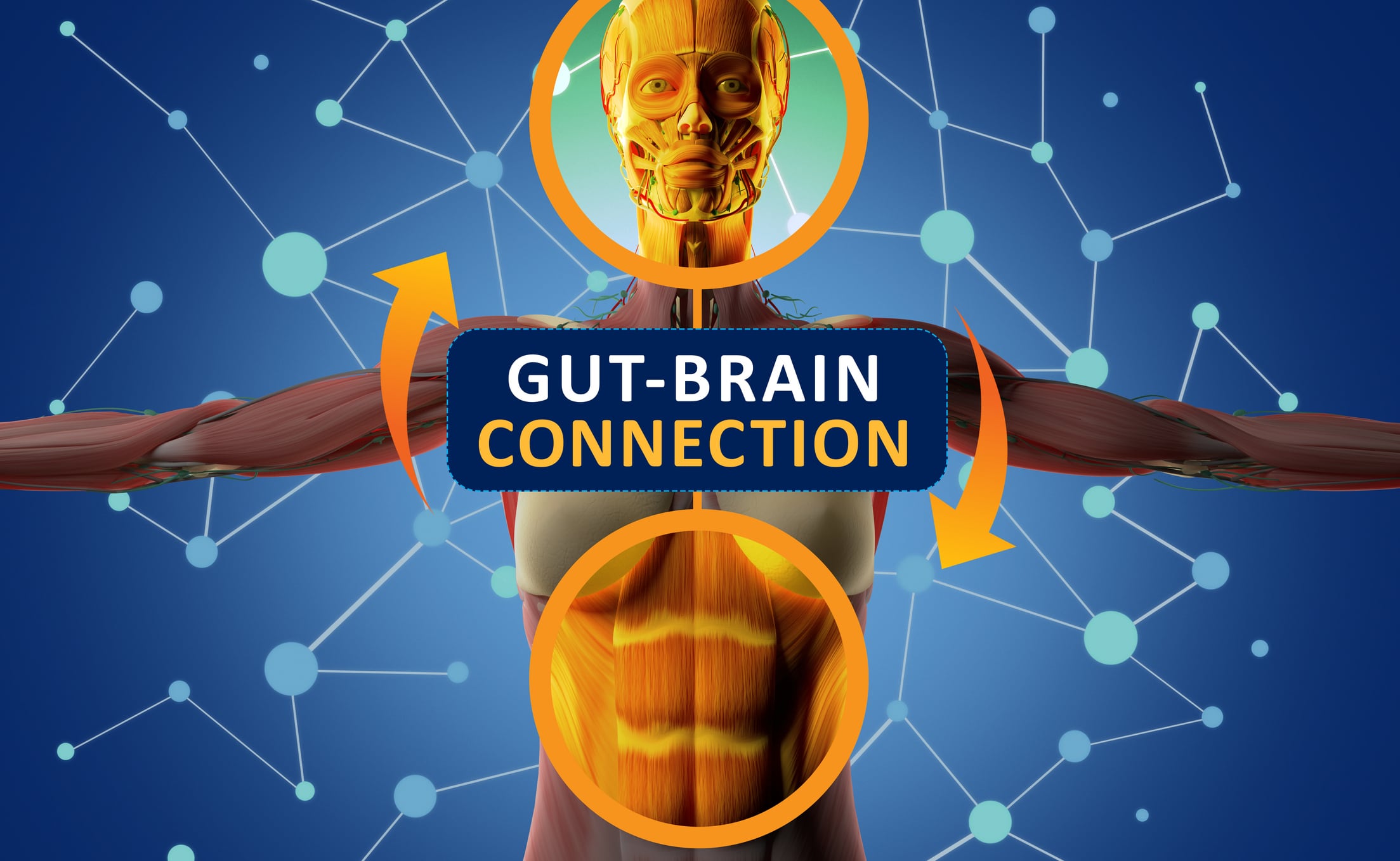Participants who consumed Omni-Biotic Stress Repair, provided by Austria-based Allergosan, had increased beneficial bacteria species and improved sleep scores compared to controls.
Reporting that their study is the first to investigate heart rate variability (HRV) alterations in people with major depression (MD) after probiotic therapy, the study “highlights potential physiological benefits of probiotics in MD, potentially mediated through VN [vagus nerve] stimulation,” researchers from the Medical University of Graz in Austria and other institutions in Dubai, Germany, and Ireland wrote in Gut Microbes.
Depression and the gut
The study identifies the links between depression and probiotics via the microbiota-gut-brain axis, noting that previous evidence suggests that patients with depression show distinct microbiota compositions and increased gut permeability and inflammation.
Vagus nerve function is also altered in depression, with “reduced HRV correlating with greater depression severity”.
Previous studies have suggested that probiotics may modulate mood, improve gut dysbiosis and boost brain function. Other reports indicate that the beneficial bacteria may alleviate stress, reduce anxiety and improve insomnia symptoms.
Known as psychobiotics, prebiotics and probiotics that have been shown to positively impact mental health have gained increasing attention from scientists and manufacturers.
In the current study, the researchers noted that “significant differences could be found only after three months of probiotic intake for autonomic parameters, underlining the necessity of long-term intake.”
Study details
The study involved 43 MD patients and 43 healthy controls who were randomized to take Allergosan’s Omni-Biotic Stress Repair or placebo twice daily for three months. Allergosan also provided funding for the microbiome analysis.
The probiotic contained nine different strains: Bifidobacterium bifidum W23, B. lactis W51, B. lactis W52, Lactobacillus acidophilus W22, L. casei W56, L. paracasei W20, L. plantarum W62, L. salivarius W24 and Lactococcus lactis W19. The total daily dose was 15 billion CFUs.
The researchers evaluated VN function using 24-hour electrocardiography (ECG) for HRV and analyzed serum and stool samples collected at baseline, 28 days and three months.
After three months, the results revealed that MD patients receiving the probiotics showed significantly improved morning vagal nerve function compared to the controls. Additionally, their levels of Christensellales, particularly Akkermansia muciniphila, which plays a key role in gut health, increased. Their sleep parameters also improved as measured by the Pittsburgh Sleep Quality Inventory (PSI).
“Specifically, Lactococcus lactis, included in our study’s probiotic, was found to be more prevalent in HC [healthy controls] but not in MD, following probiotic intake,” the researchers wrote.
“The gut microbiome’s complexity suggests that probiotics can induce significant effects on gut function and host health, even if the administered species are not directly detectable in stool samples.”
Noting the study limitations, the researchers call for further research to examine how targeted psychobiotics affect vagal nerve function over time.
Source: Gut Microbes, 17(1). doi: 10.1080/19490976.2025.2492377. “Multi-species probiotic supplement enhances vagal nerve function – results of a randomized controlled trial in patients with depression and healthy controls”. Authors: S. Mörkl et al.

